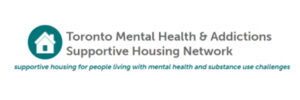Home

Need Supportive Housing?
See what we are about!
At Chai-Tikvah, we help individuals and families through support services, serve communities through programs and partnerships, and change policies or practices through advocacy and research.
What we do is driven by the voices of our clients who, despite their mental health illnesses, are thriving and surviving in their communities.
Rochelle Goldman-Brown, Mental Health Consultant, Reena

The need is great.
1 in 5 people will need us.
Serious mental illnesses disrupt people’s ability to carry out essential aspects of daily life, such as self-care, maintaining employment and household management. Mental illnesses may also prevent people from forming and maintaining stable relationships or cause people to misinterpret others’ guidance and react irrationally. This often results in pushing away caregivers, family, and friends who may be the force keeping that person from becoming homeless.

The reality is bad.
Our economy suffers.
Mental illness costs the Canadian economy a staggering $51-billion a year, and each day 500,000 people will miss work due to mental health problems.
Mental illness is the number one cause of disability in Canada, accounting for nearly 30% of disability claims and 70% of total costs. Mental health disorders in the workplace cost Canadian companies nearly 14% of their net annual profits and up to $16 billion annually.

Community matters.
It will take every one coming together.
This is a big deal. The need and staggering number of those who silently suffer with mental illness and the burden that is placed on the families and communities is great. With more supportive housing we could give everyone the option of expert care and support.
You can help us bring life & hope to those suffering with mental illness!
Mental Health in Our Community
Mental Wellness Support Services
Chai-Tikvah Support Groups
“Being with others who understand mental illnesses such as depression, can be a lifeline,” says Laura Goldbloom, one of Chai-Tikvah’s social workers who leads our program Club Simcha. “Knowing that you’re not alone can make a world of difference.” “Many people tell us they feel ashamed about being depressed,” says Laura. “When they meet other people with similar mental health issues, symptoms and behaviours, and realize that it’s not uncommon to feel and act as they do, it can really help their self-esteem”
Chai-Tikvah’s self-help groups allow people with mental health issues, such as depression, to provide as well as receive help. “Self-help groups can be a fun and uplifting way to make new friends and to share support and ideas through illness and recovery,” says Laura. “People in our groups support one another, which can help their self-confidence.”
What happens at the club Simcha Support group meeting?
Sitting and talking isn’t the only thing that happens at meetings. Many group leaders organize social events and arrange special activities to help boost your mood and improve your wellbeing.
“Going to a group for the first time can be daunting, but you can be sure of a warm welcome, and people will understand how hard it can be to take that first step,” says Laura.
“All sorts of people attend, and it’s a very friendly and close-knit community.” Our Club Simcha Program is an enjoyable and simple way to find others affected by their loved one’s mental health illness who may live near you or who may share your interests.”
Club Simcha is Chai-Tikvah’s community support group program. Groups meet once a week on Mondays, from 11:30 am to 1:30 pm. and can accommodate 20 to 30 people. Consistent interaction within the safe and close-knit community, this support group helps to combat social isolation and stigma while empowering participants with a sense of possibility and achievement. Many people have found that by coming to this support group, they have felt a boost their confidence, a transformation in their attitudes about living with a mental illness, and has helped them manage some of the symptoms associated with their illness and associated with their specific treatment plans.
You need to remind yourself that you are not to blame for a loved one’s mental illness. Mental illnesses are caused by many different factors that work together, such as genetics, biology, environment, and life experiences.
Loved ones can and do, play a big part in helping a person recover, work towards their goals, and stay well. Care and emotional support go a long way in recovery and well-being. So can practical help, like managing doctor’s appointments and other daily tasks. You can also play a part in helping a loved one maintain well-being. You and other close supporters may be the first to notice changes in a loved one’s mood, behaviour, self-care, or other area that shows their mental health may be worsening. This means you can help your loved one find the right help early.
Please call us 416 634-3050 or e-mail us info@chaitikvah.org and a Chai-Tikvah staff member will be happy to answer your questions or direct you to a staff member who can.
Our Facilities
Supportive housing for those in need.
In 2018, as part of our expansion, Chai-Tikvah sold The Jerry Turk Fellowship Home our first group home to invest in a six-plex. The new housing model allows for immediate and future expansion from one home with 8 residents to today’s 3 units with 10 people and the opportunity to redesign the other three units for another 10 people. The expanded service will continue to support individuals who are dealing with mental health issues. Its goal is to provide the residents with the ability to thrive independently within their community. Professional staff support is on-site and work 24/ 7. This program works to support the residents by addressing their recovery and well-being goals, helping residents to develop and maintain life living skills, such as cooking, cleaning and hygiene practices.
The Life & Hope Foundation Triplex is our semi-independent residential facility consists of three units that can accommodate up to 8 adults each, at any one time. Staff is on-site three times a week, with back-up support from our 24-hour group home. Its goal is to provide the residents the ability to thrive independently within their community while receiving the necessary staff support (24/ 7). This facility works to support the residents by addressing their recovery and wellbeing goals. The group home focuses on helping its clients develop and maintain such life living skills, such as: cooking, cleaning and hygiene practices. This program has been the gateway that allows many of our clients to move out of the triplex to thrive completely independently within their community.
Admission Criteria
While we endeavour to help as many people as possible, our current facilities can only serve those who meet the below eligibilty criteria.
- Men and Women, sixteen years and older, who require support services.
- Must be stabilized, i.e. interacts in a non-harmful manner.
- Does not pose a risk to self/others/property, i.e. does not use derogatory language and is not verbally or physically abusive.
- Must be physically healthy, i.e. not requiring daily nursing care.
- No recent history of substance abuse (alcohol or other drugs).
- No history record of indictable offenses (such as assault, arson or charges pending).
- No chronic history of violence toward other people or property, and no recent attempt at suicide.
- Must have a psychiatrist and established acceptable regime and treatment plan to deal with psychiatric illness.
- Is willing to participate in individual and group chores, i.e. cooking, meal clean up.
- Must voluntarily enter home on a contractual basis.
- Must be willing and able to learn basic living skills, such as personal care, and co-operative and community living.
- Must have some source of income and be capable of meeting some programme expenses.
- Must be willing to accept encouragement and support from staff toward exploring flexible options for weekday activities.
- Must be able to benefit from a supervised home, in a way that they can improve their sense of well-being, self-esteem, and reach a higher level of functioning. This will enable the member make the transition to a more independant living arrangement.
For more information contact us!
How can we help?
Chai-Tikvah
(Formerly The Life & Hope Foundation)
313 C – 1 Promenade Circle
Thornhill Ontario L4J 4P8
Phone: 905-889-6484
Email: info@chaitikvah.org
Charitable Registration Number 11884 90 82 R0001
Now Serving
Toronto
Office Available
10 am – 4 pm
What to do in an emergency?
Call 911 if you or a loved one are in immediate danger. Notify the operator that it is a psychiatric emergency and ask for an officer trained to help people with a mental health condition.
If you are in crisis or just need to talk about suicidal thoughts, call
416 408-4357, the Toronto Distress Line. It is a 24-hour, confidential suicide prevention hotline.
How to plan for an emergency?
If your loved one experiences serious episodes that cause problems, it’s important to plan ahead for these problems. These plans—written during times of wellness—usually map out what will happen and who will be involved, and who to call if and when a loved one starts to feel unwell. You may be included in a plan with your loved one’s care team, but you can make a plan just between you and your loved one, too.
If you believe that a loved one is at risk of harming themselves or others and they will not seek help, you may get a mental health assessment through your province’s or territory’s mental health laws. In general, these laws let a doctor, judge, police officer, or justice of the peace order an evaluation if a person meets certain criteria. While this can be a helpful tool in a crisis situation, it can also be difficult and traumatic for everyone involved. Ideally, a loved one should have a plan in place that seeks action before these emergency measures are necessary. Contact your provincial or territorial ministry or department of health to learn more. Call us if you need help with this.
Who is taking care of you?
When a loved one experiences a mental illness, their care and support can take a lot of time and energy. But your own needs are just as important, too. If you aren’t well, it is even harder to help someone else regain wellness. Here are some tips to think about according to our psychologist Dr. Edna Bloomstein:
- Accept your own feelings and know that you are not alone. It is natural to feel many different emotions when a loved one is diagnosed with a mental illness. Other people experience the same challenges and complicated mix of emotions, just like you. Let yourself feel whatever you need to feel.
- Take time to learn more about mental illnesses. This will give you a better understanding of your loved one’s experiences and help you see what they may be going through. You can find reliable information online, through provincial or territorial health services, and through community organizations.
- Stay connected. Embarrassment, social stigma and fear can stop many family members from seeking help when a loved one is diagnosed with a mental illness. But that can isolate you at a time when you need the most support from others. Talk to trusted friends and family and let them know what you’re experiencing. If you aren’t sure where to go, try connecting with a community organization.
- Join a support group. Support groups are a good place to share your experiences, learn from others, and connect with people who understand what you’re going through. The Family Caregiver Connection Program is our support group that is specifically designed to support those seniors who are the primary caregivers for their loved one who is dealing with mental health issues. Groups meet once a week on Wednesdays, from 12:00 pm to 2:00 pm. and can accommodate 20 to 30 people.
- Take time for yourself. If you are caring for a loved one, your responsibilities may use up your physical and emotional energy. It’s important to take time for yourself. It can help you recharge and give you a more balanced perspective toward any challenges you experience. Schedule opportunities that allow you to relax, have fun and get away so you can come back to your loved one with a healthier outlook. You can’t care for someone else if you haven’t cared for yourself first.
- Seek help for yourself. Caring for a loved one who’s unwell can be stressful. Long periods of stress can lead to mental health or substance use problems. Seek help if you find your own well-being slipping, and encourage family members to seek help if they need it. Mental illness can also have a big impact on family relationships. It’s a good idea to seek counseling for the entire family.
- Develop coping strategies for challenging behaviours. There may be times when a loved one shows strange or challenging behaviours that can make you feel confused, embarrassed, or scared. This can happen in public or in private. It’s best to talk with your loved one’s care team for strategies to manage challenging situations. Here are some tips:
- Learn more about your options.
- Plan the best strategies for the situation.
- Understand that this is not personal.
- Realize that some behaviours may be beyond your loved one’s control, they may be as distressing to them as they are to you.
- It is also important to tell your loved one (and their care team) what behaviours you aren’t willing to tolerate. You have rights too—you never have to tolerate dangerous or abusive behaviour.
Income Support?
When someone you love is diagnosed with a mental illness, you may worry about their financial future. If they are unemployed or do not make enough to support themselves, they may qualify for income supports. Some programs are provincial or territorial, and others are national. Talk with a loved one’s care team, provincial or territorial services, or a local organization to see what’s available. Your bank can also help with tools like a Registered Disability Savings Plan.
Our Partners



